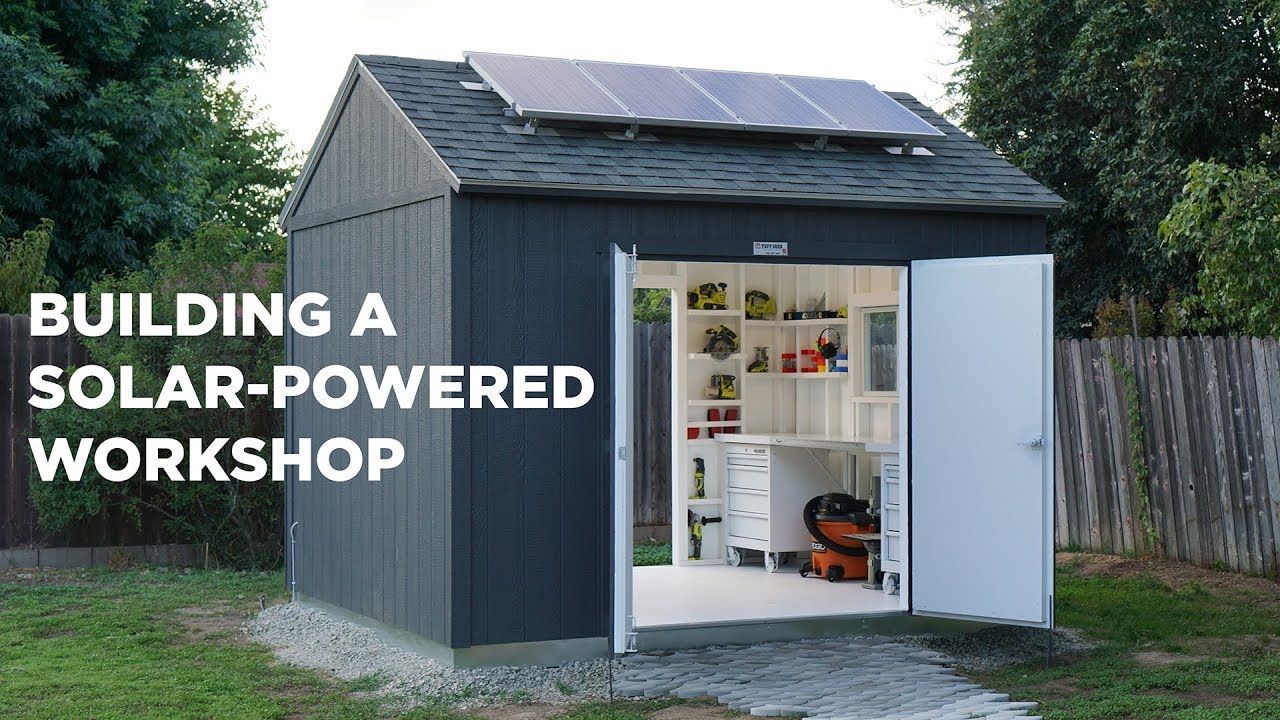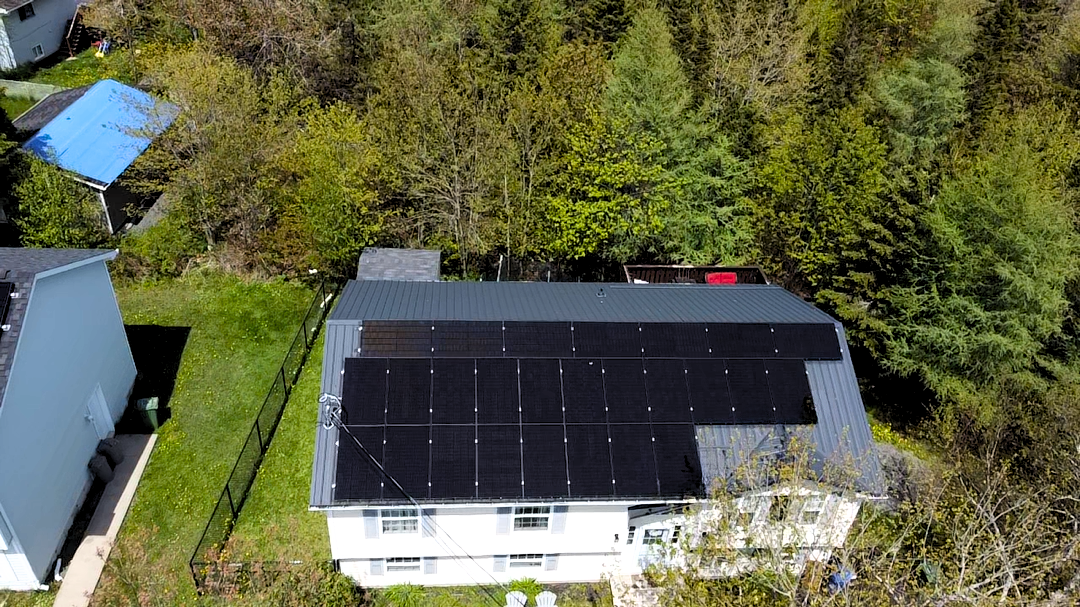How many solar panels does it take to power a house and detached workshop?
Whether for economic reasons, ecological reasons, or both, getting 100% of your electricity from your own renewable energy source can be powerful. It can make a measurable impact on the environment by keeping CO2 out of the atmosphere. It can also keep money in your bank account by providing you with free electricity for decades.

If you are planning to go 100% solar, you can start by estimating the electricity consumption of your entire house, including the detached workshop. Often incorporated into the home's garage, workshops are small workplaces where handicrafts, or other home improvement projects are completed. Workshops are functional spots for lawn and gardening projects as well.
Workshops and garages that require a bit of power or light are ideal for installing solar panels, especially if they’re situated on your property and considerably far away from your main house. If the alternative of running an underground cable to power your garage or shed seems like an Olympic-sized challenge, then installing solar panels could be the easiest and most cost-effective solution.
Meeting 100% of a home’s power needs with solar energy is doable. But there are a few factors to consider:
First, you’ll need to determine how much energy you use, and then assess certain limiting factors for your property. These factors include the space you have available for your solar system. They also include typical weather patterns and shading on your property.
Nova Scotia ranks as one of the best provinces in the country for installing a solar power system, scoring as one of the best provinces for rebates, financing options, and installation costs.
Sizing your system
To determine the size of system that you need, you only need to know how much energy you use during the course of a year. Your monthly bill will show your usage in kWh. You can calculate your annual energy by adding up the amount shown for 12 consecutive months. Don’t make the mistake of multiplying a single month by 12 – usage fluctuates greatly depending on the season.
Now that you know the size of your system in units of kW, you can determine how much space the system will require by converting it to units of sq ft.
The average solar panel is approximately 18sqft in size (including some buffer room for racking and spacing) and produces about 300watts of power.
You can calculate the size of the solar power system that you’ll need with the following equation:
Size of system needed (kW) = yearly energy use (kWh) / 1090
*Nova Scotia receives an average of 1090 hours of sunlight annually.
The equation to calculate the space that your solar system require is again simple:
Physical space required = size of system needed (in kW) / size of panel (in kW) * physical size of panel (in sqft)
A typical home needs between 20 and 25 solar panels to cover 100 percent of its electricity usage. The actual number you’ll need to install depends on factors including geographic location, panel efficiency, panel rated power, and your personal energy consumption habits.
Importantly, the number of solar panels you need for your home directly impacts the price you pay for solar.
If you are a homeowner in Nova Scotia looking to power your house and detached workshop on solar power, the next step you need to take is to get in touch with Aztek Solar. When you choose us as your solar installer, you’ll discover more than just expert technicians and meticulous service. You’ll also receive the care of local staff who are committed to customer service from start to finish. We are here to answer any questions about the installation process and ensure solar energy is a good fit for your home and a worthwhile investment!
Thanks for reading!
Brian McKay
aka The Solar Guy


For more information about a Solar Energy Solution, including Whole Home Solar PV and Solar Pool Heating solutions for your home or business, please contact AZTEK SOLAR for your free on-site evaluation and ask about the $3,000 cash-back rebate now available.
AZTEK SOLAR is a leading Nova Scotia residential and commercial solar installer, serving Halifax, Dartmouth and the surrounding areas throughout rural Nova Scotia.
With expertise in a wide variety of systems, including Solar PV (grid-tied) systems, solar hot water and solar pool heating systems, AZTEK SOLAR has helped hundreds of Atlantic Canadian homeowners, farm operations, business owners and municipalities lower their energy bills while reducing their carbon footprint.
#SolarIsNow #RenewableEnergy #AztekSolar


